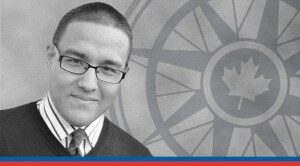A limited comprehension of the situation on the ground, a lack of specific aims, and spread-out Canadian troops too thin leads to peacekeeping incoherence, write Shimooka and Macnamara.
By Richard Shimooka and Don Macnamara, Nov. 14, 2017.
Over the past few weeks there has been a renewed impetus toward Canada undertaking a new peacekeeping mission. While some of the motivations behind such an intervention are laudable, they present a number of challenges and considerations that should be fully understood before a commitment is made.
There is first a question as to whether the Canadian government or public fully realize what United Nations peacekeeping operations entail. During the Cold War, Canadian participation in peacekeeping operations was a novel approach to deal with international crises that could escalate tensions between the superpowers. The classic example was the first mission in Suez in 1956 and then in Cyprus in 1974, where Canadian Armed Forces (CAF) units interposed themselves between two sides to oversee a peace agreement and defuse tensions, which might have ultimately prevented the existential threat of a nuclear war. Canada was one of the few countries with the military professional competency to undertake such a role.
Those types of operations have almost completely faded from view, as the vast majority of UN missions now involve stabilization or peace enforcement, with less interstate conflict and more internal disorder with multiple warring factions. They more closely resemble Afghanistan in 2017 in scope and role than Cyprus in 1974, and may be just as – if not more – dangerous. For example, the UN stabilization mission in Mali, frequently raised as a potential location for Canada’s peacekeeping contribution, has suffered more than 130 fatalities over the past four years. Other current operations, like those in the Central African Republic or Sudan, present similar dangers.
Simply dropping troops into a conflict zone with limited comprehension of the local situation is a major handicap to success.
A peculiarity of the Liberal Party’s promise to contribute to a peacekeeping mission is without parallel internationally, which is indicative of its mythology in Canada’s culture. Generally, Western states’ policy processes identify interests and threats to them, prioritize and allocate resources accordingly, like diplomatic engagement, foreign assistance and military assets if necessary. Typically, major priorities remain consistent and receive a preponderance of focus. United Nations peace support missions are viewed as a tool to achieve aims, not an end in themselves.
The conventional approach lends itself to better outcomes. Simply dropping troops into a conflict zone with limited comprehension of the local situation is a major handicap to success. States with long involvement in a region tend to have a much better understanding of a crisis’s dynamics and how to manage it. This problem is compounded by the current distribution of the CAF. Instead of focusing on one or two major operations, this military is spread across Europe, the Middle East and Africa in penny-packet contributions, which limits the organizational bandwidth the government has to manage any particular mission.
The pitfalls of such an approach are playing out in northern Iraq today. Prior to 2014, Canada had little interest or resources committed to the region. However, the surprising growth of the Islamic State led the Harper government to commit the CAF. The Liberals refocused, withdrew the RCAF air-support fighters and expanded the special forces’ advise-and-assist mission. This was largely centred on Kurdish forces in Iraq, but presented significant risks. A good example is the long-stated Kurdish desire to secede from the central government of Iraq and form an independent Kurdistan.
Our limited instruments of national power are a precious commodity – especially the lives of our country’s soldiers.
Canada’s incoherence has been laid bare in the past weeks, after a Kurdish independence referendum resulted in a major Iraqi government intervention. It has left Canadian troops in a precarious position with troops supporting, and possibly between, both sides, leading the government to suspend its activities on the ground. While thankfully no Canadians soldiers were harmed, the situation illustrates how vulnerable they become if the government does not have a good grasp of the situation.
The unfortunate reality of the globalized interconnected international system is that any so-called “peace-support” intervention now entails significant risk. The essential strategic intelligence must therefore address potential interactions and downstream effects. Our limited instruments of national power are a precious commodity – especially the lives of our country’s soldiers. They must not be squandered for political purposes.
Richard Shimooka is a senior fellow at the Macdonald-Laurier Institute’s Centre for Advancing Canada’s Interests Abroad. Don Macnamara is a retired brigadier-general and a national-security strategy analyst living in Sidney, B.C.





